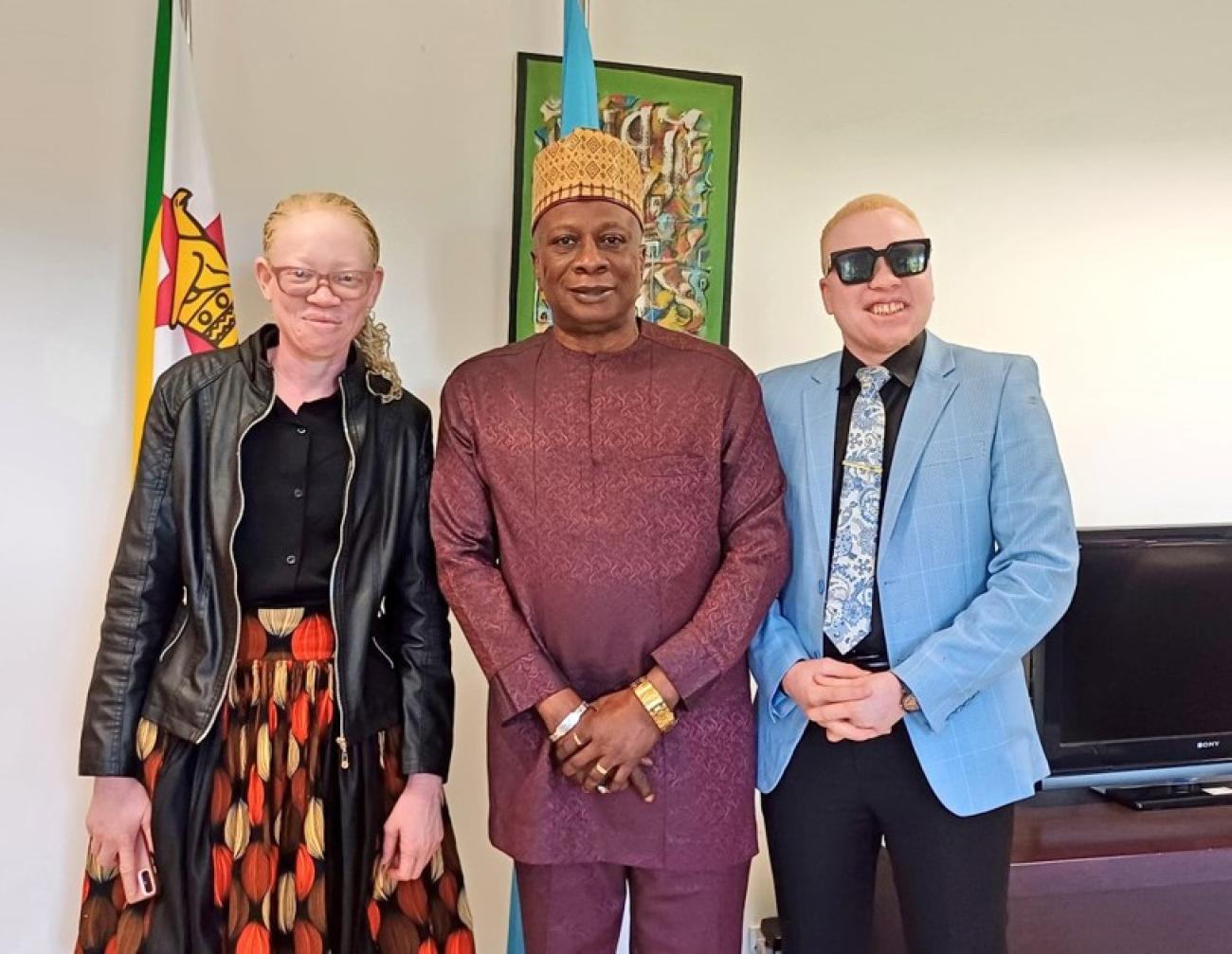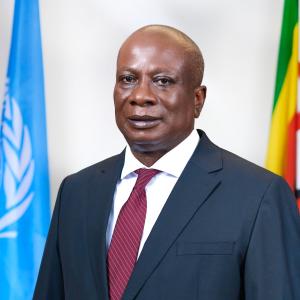Pledging to Protect Rights and Secure Bright Future for Persons with Albinism

Today, as we commemorate IAAD, it is imperative to focus on actionable change.
As we observe International Albinism Awareness Day (IAAD) this year under the theme, "Demanding our Rights: Protect our Skin, Preserve our Lives," it's a poignant reminder of the strides and challenges faced by persons with albinism across the globe. Particularly in Africa, this day underscores the critical health risks they face and the societal obstacles they need to overcome.
Albinism is more than a genetic condition marked by a lack of melanin pigment in the skin, hair, and eyes. For millions, especially in African nations like Zimbabwe, it comes with severe health concerns, notably the elevated risk of developing life-threatening skin cancer due to the harsh sun exposure compounded by limited access to necessary preventive measures. Unlike most individuals who may see sunscreen as a luxury or for seasonal use, for persons with albinism, it's a life-saving necessity.
The global advocacy movement, supported by the United Nations, is urging the World Health Organization to include sunscreen in its Essential Medicines List (EML). Doing so would transform its perception from a mere cosmetic product to an essential healthcare intervention, particularly in underserved communities where its absence is a matter of life and death.
Yet, the battle for rights extends beyond health issues. Discrimination and prejudice are pervasive challenges for people with albinism in Zimbabwe and beyond. They often face multiple forms of injustice, from educational and healthcare access limitations to the lingering threat of societal and cultural myths that foster violence and stigma. The emotional and physical scars from being ostracized or attacked due to superstitious beliefs remain deep.
Despite these challenges, persons with albinism are continuously breaking barriers. They are students distinguishing themselves academically, leaders influencing policy, artists celebrating unique beauty, and citizens making substantial contributions to their societies. They underscore the resilience and potential that exist within all marginalized groups when given equal opportunities and rights.
Organizations such as the Zimbabwe Albino Association (ZIMAS) and the Albinism Dare to Dream Initiative (ADDI) are essential in transforming the narrative around albinism. Through powerful advocacy campaigns, public education, and awareness-raising, these organizations are actively reshaping societal perceptions and challenging long-standing stereotypes about persons with albinism. Building on these efforts, the United Nations in Zimbabwe, in collaboration with ZIMAS, ADDI, and other partners, is amplifying these critical messages through an ongoing social media campaign. These initiatives lead powerful advocacy campaigns, educate the public, and drive change, reshaping how society perceives individuals with albinism. Their efforts are crucial to fostering a society that celebrates its diversity and dismantles outdated prejudices.
International legal frameworks like the Convention on the Rights of Persons with Disabilities (CRPD) provide a robust foundation for advancing the rights of persons with albinism. The UN's commitment to these frameworks, alongside Zimbabwe's National Disability Policy, lays the groundwork for inclusive legislation and practices. The ongoing development of the Persons with Disabilities Bill in Zimbabwe represents a vital step forward. However, its completion and enforcement will be crucial in ensuring that the rights of all persons with disabilities, including those with albinism, are protected and respected.
Today, as we commemorate IAAD, it is imperative to focus on actionable change. From policy reforms to inclusive healthcare and societal acceptance, the journey towards justice and dignity for persons with albinism is ongoing. It is about creating an environment where their rights are seen not as additional but essential; where inclusion in education, healthcare, and community life is the norm.
To every person with albinism in Zimbabwe and beyond, the message is clear: your rights are human rights. The universality and indivisibility of human rights are fundamental principles that underpin the protection and promotion of the rights of persons with albinism, aligned with the overarching "leave no one behind" principle of the 2030 Agenda for Sustainable Development. This principle asserts that all human beings, regardless of race, gender, ethnicity, or conditions such as albinism, are entitled to the same fundamental rights and freedoms ensuring that progress in sustainable development is inclusive, promoting dignity, equality, and justice for all members of society.
For persons with albinism, this means they are entitled to equal access to education, health care, protection from discrimination and violence, and social inclusion, without exception. It also entails targeted efforts to eliminate barriers they face, such as social stigma, lack of access to health services, and exposure to violence and discrimination.
Recognizing the universality of human rights emphasizes that their rights are inherent and applicable to all, fostering a global commitment to their dignity and well-being. The indivisibility of human rights signifies that all rights are interconnected and equally essential; the violation of one right undermines others. For persons with albinism, this means that protecting their right to life and security must go hand-in-hand with ensuring their rights to health, education, and social participation. Addressing challenges such as discrimination, stigmatization, and violence requires a comprehensive approach that respects the full spectrum of human rights.
In my recent interaction with young Zimbabweans with albinism, I was particularly struck by the insights of Lordwin Rimire and Emmaculate Chipunza. Our conversations highlighted, with great clarity the pressing need for sustained advocacy and stronger, more authentic representation of people with albinism in all spheres of society. Lordwin emphasized the need for more people with albinism to be involved in decision and policy making processes, while Emmaculate underscored the need to dismantle stereotypes and create spaces where persons with albinism can thrive without fear or limitation. Through determination, initiative, and enthusiasm, combined with a societal commitment to support the principles of Ubuntu, we can eliminate discrimination based on skin color, making it a relic of the past.
The urgent call for inclusion and justice from the passionate young people with Albinism I have had the honor to engage with is timely, powerful, and valid. My message to them and to all individuals with albinism is that you are recognized, seen, listened to, valued, and appreciated. Society is richer with your contributions, and your unique place within it is indispensable.
As society, individuals, and members of the global community, it's our shared responsibility to ensure that persons with albinism are not only recognized but are integral parts of our communities, safeguarded by supportive legislative frameworks and celebrated for their invaluable contributions to our cultural tapestry. Their future is not only of personal significance but a beacon of hope and possibility for us all, reflecting the true essence of our shared humanity.
I echo Martin Luther King Jr.'s enduring truth: injustice for one is injustice for all. I reaffirm my commitment to advocating for the rights and an inclusive future for all persons with albinism, working tirelessly to ensure their dignity, equality, and full participation in society.
Written by






